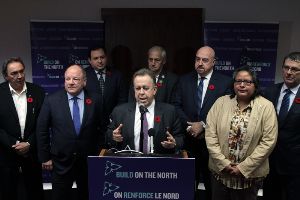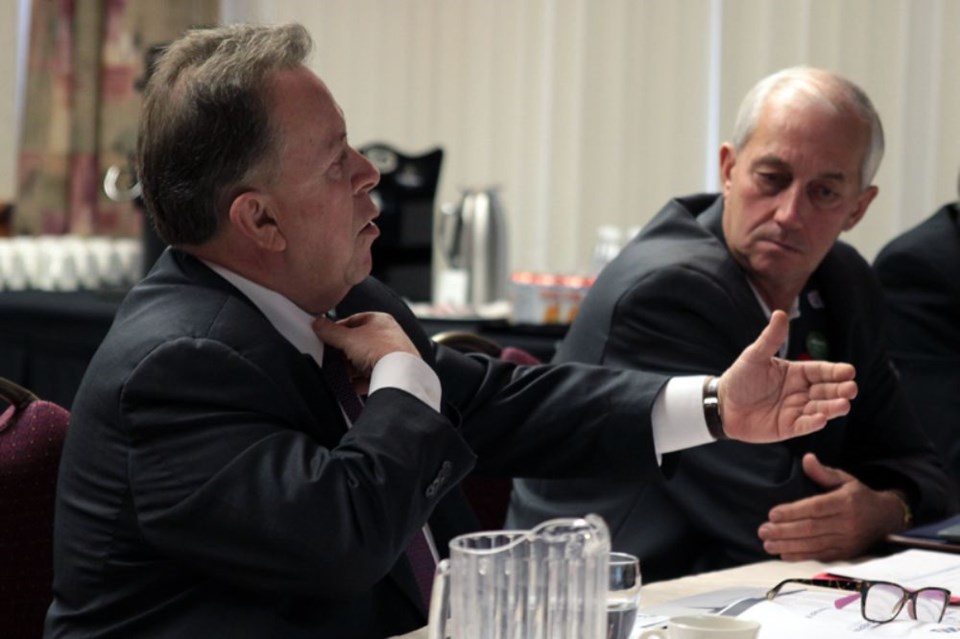THUNDER BAY -- Regional leaders have completed a two-day analysis of programs and policies the province intends to unveil for Northern Ontario.
Transportation, agriculture, mining and forestry were all discussed at the Northern Leaders’ Dialogue at the Valhalla Inn over Monday and Tuesday. The semi-annual meetings are designed to update elected officials on the Northern Growth Plan’s progress and allow for input regarding next steps.
“This is a great opportunity certainly from the province’s perspective to work as closely as I do with the municipal, First Nations and Metis Nation is vital, I think , to us making the best kinds of decisions,” said Minister of Northern Development and Mines, Michael Gravelle, whose office oversees the Northern Growth Plan.
Gravelle used the opportunity to finalize feedback on the upcoming Multi-modal Transportation Strategy and collect input on how to revitalize the province’s Mineral Development Strategy.
Northwestern Ontario Municipal Association president Dave Canfield pointed out municipal, First Nations and Metis leaders walk a different beat than lawmakers and policy advisors in Queen’s Park. He valued the opportunity to compare notes with other northern leaders as they presented their perspective to the provincial ministry with the governing authority over the north.
“I don’t know how many times in the last two days people have said, ‘hold on a minute there. These regulations are not good for us. These regulations are creating issues. This is what we think should happen,’ and that has been a big part of this,” Canfield said.
“Since we’ve started these meetings, it has gotten better.”

While Gravelle reflected on how to mitigate the climate change impacts of a pan-northern air, road, rail and water transportation strategy for Northern Ontario, Canfield was focused on developing publicly-funded, small-scale transportation to replace the failing private bus industry.
“The fact is, we don’t need million-dollar motor coaches to transport our people. We could have a $50,000, 12-passenger van could do the same thing realistically – and it’s affordable,” Canfield said.
“It can get the people in the small communities, whether it’s Fort Frances or Sioux Lookout to the regional hospital in Thunder Bay.”
Self-described “road warrior” and Couchiching First Nation Chief Sara Mainville agreed, adding travel to the Thunder Bay Regional Health Sciences Centre is a major expense for members of her community.
When it came to development and communication with the province, Mainville advocated for the model her community developed with the nearby New Gold mine, which is providing considerable employment for Area One First Nations.
To develop those relationships and ensure Treaty and Aboriginal rights are respected, she said, senior levels of government need to commit the resources necessary for capacity-building in the First Nations of Northern Ontario.
“I have a stack of letters asking me to engage in consultation and it’s just not enough. Notification of things that are happening is just not enough,” she said.
“We have a really good new relationship coordinator in Couchiching as many First Nations do but they’re just inundated in notification requests and information gather and it’s not really substantive discussion on how our Aboriginal rights are impacted by these projects. We have to self-fund these things and we just don’t have enough resources to do that.”
